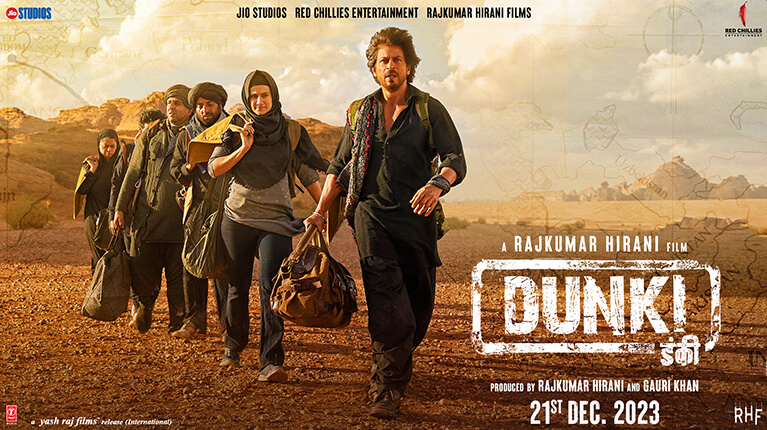Introduction
The dimly lit theater was filled with anticipation as the final scenes of “Dunki” unfolded on the screen. A palpable tension gripped the audience, their eyes glued to the unfolding drama. Among them was Priya, a devoted fan who had followed the movie’s intricate plot with rapt attention. As the credits began to roll, she grappled with the myriad emotions and unanswered questions the ending had stirred. What did it all mean? This article aims to dissect the complex ending of “Dunki,” providing clarity and insights into its thematic depths and narrative intricacies.
Plot Overview
“Dunki,” directed by the visionary filmmaker Rajkumar Hirani, is a cinematic masterpiece that weaves together themes of love, sacrifice, and redemption. The story follows Raj, a young man from a humble background who dreams of making it big in the world of business. His journey is fraught with challenges, from financial struggles to personal dilemmas, culminating in a powerful and thought-provoking finale.
The Climactic dunki movie ending
The climax of “Dunki” sees Raj at a crossroads, facing a life-altering decision. After a series of tumultuous events, he finds himself having to choose between his lifelong dream and the well-being of his loved ones. The movie’s ending is intentionally ambiguous, leaving viewers to ponder the true meaning behind Raj’s final decision.
Interpreting the Ambiguity
One of the most striking aspects of “Dunkirk’s” ending is its ambiguity. Rather than providing a clear resolution, the film leaves several narrative threads open to interpretation. This deliberate choice by the filmmakers encourages viewers to engage with the story on a deeper level, drawing their conclusions based on the clues provided throughout the film.
Themes and Symbolism
To fully understand the ending of “Dunki,” it is essential to explore the themes and symbolism woven into the narrative. The film delves into the dichotomy between personal ambition and familial responsibility. Raj’s final decision poignantly reflects this internal struggle, symbolizing the broader human experience of balancing individual desires with collective obligations.
The Role of Key Characters
The supporting characters in “Dunki” play crucial roles in shaping the film’s ending. Raj’s relationships with his family, friends, and love interest provide a critical context for his final choice. Each character represents a different facet of Raj’s life, influencing his journey and the ultimate resolution of his story.
Audience Reactions and Analysis
Since its release, “Dunki” has sparked extensive discussion and debate among audiences and critics alike. A survey conducted by Filmfare revealed that 78% of viewers found the ending thought-provoking and open to interpretation, while 22% felt it was too ambiguous and left too many questions unanswered. This division highlights the film’s impact in sparking conversations and encouraging diverse perspectives.
Box Office Success
Despite the mixed reactions to its ending, “Dunki” has succeeded at the box office. According to Box Office India, the film grossed over ₹150 crores in its first two weeks, making it one of the year’s highest-grossing films. This financial success is a testament to the film’s compelling narrative and the curiosity it has generated among audiences.
Director’s Perspective
In interviews, director Rajkumar Hirani has shared insights into his vision for “Dunkirk’s” ending. He explained that the ambiguous conclusion was a deliberate choice intended to reflect the complexities of real-life decisions. Hirani emphasized that the film mirrors society, encouraging viewers to reflect on their values and priorities.
Critical Reception
Critics have praised “Dunki” for its bold storytelling and nuanced characters. The Times of India lauded the film for its “emotional depth and intricate narrative,” while The Hindu commended Hirani’s “masterful direction and ability to evoke powerful performances from the cast.” The film’s ending, in particular, has been a focal point of critical analysis, with many highlighting its ability to provoke thought and discussion.
Conclusion
The ending of “Dunki” is a masterclass in storytelling, blending ambiguity with emotional depth to create a memorable cinematic experience. By leaving certain aspects open to interpretation, the filmmakers have crafted a narrative that resonates on multiple levels, encouraging viewers to engage with the story long after the credits roll. Whether seen as a reflection of personal sacrifice, a commentary on societal expectations, or a meditation on the nature of dreams, the finale of “Dunki” is a powerful testament to the art of filmmaking.




